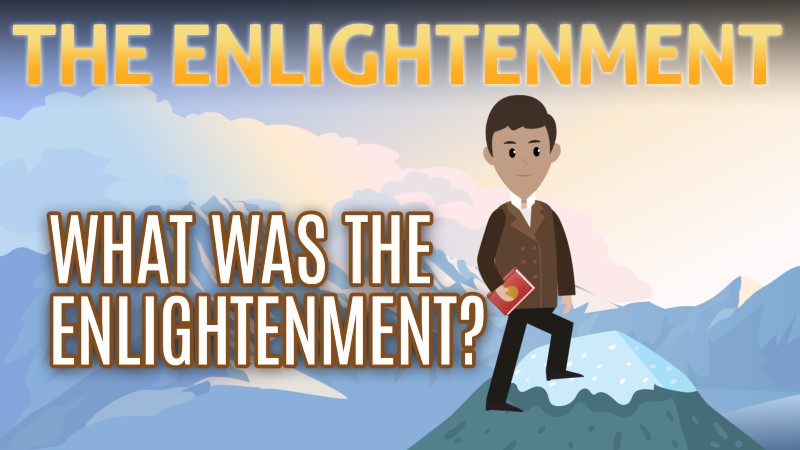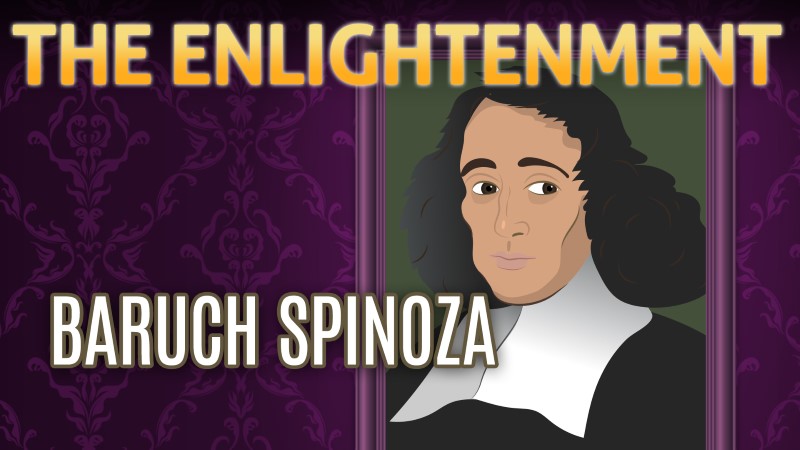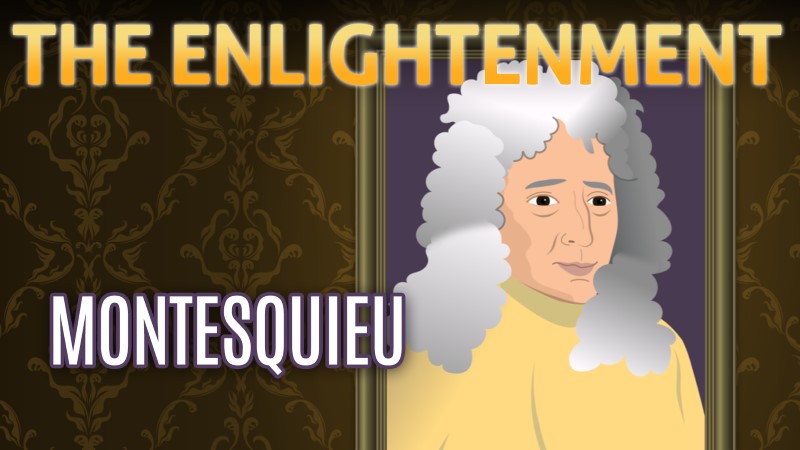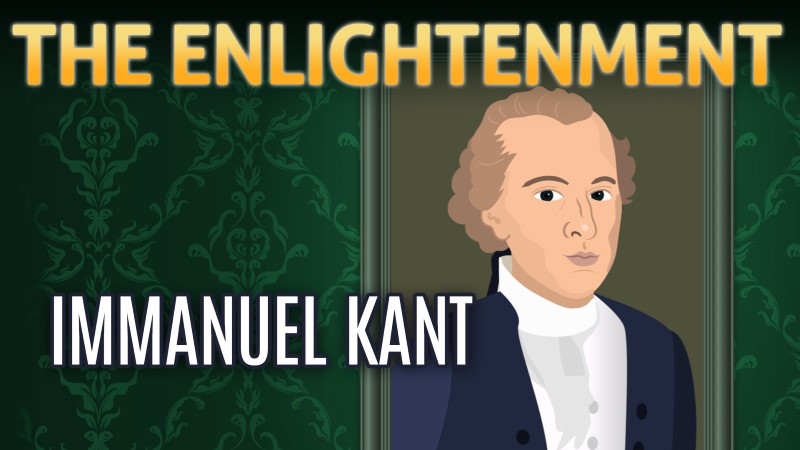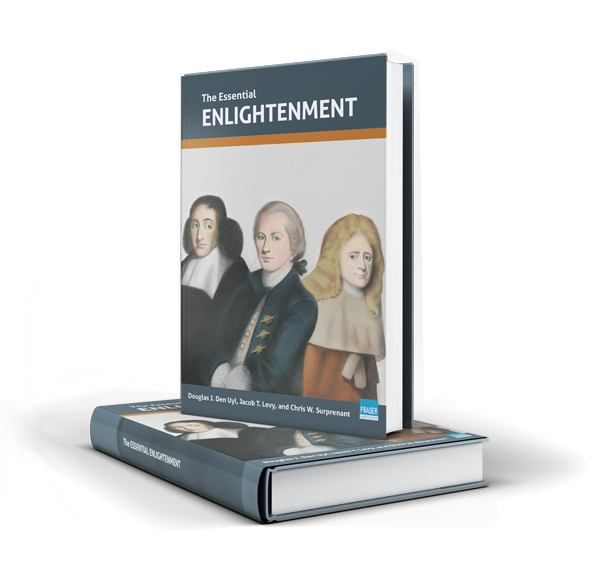by Douglas J. Den Uyl, Jacob T., Levy, and Chris W. Surprenant
The political ideas that fully came together under the name “liberal” in the early nineteenth century—the ideas we often now refer to as “classical liberalism”—emerged out of major debates and developments from the late 1600s to the late 1700s, part of the broad European intellectual movement of that era that came to be known as “the Enlightenment.”
This volume shows how the Enlightenment and the development of liberal ideas were woven together by looking at three defining figures of the era: Baruch Spinoza (writing in the mid-1600s), the Baron de Montesquieu (mid-1700s) and Immanuel Kant (whose career reached its height in the final two decades of the 1700s). Both Spinoza and Kant were concerned with fundamental philosophical questions about what we could know about God, morality, the nature of the world, and humanity’s place in it. Montesquieu wrote almost nothing about such questions, drawing instead from global history and comparative law.
While the Enlightenment is associated with many things, one of them was the struggle to understand morality and human nature through the use of reason rather than relying on religious authority; another was the attempt to understand political and social orders in ways that would prevent a return to the wars of religion that had divided Europe in the 1500s and the first half of the 1600s. In various ways, Spinoza, Montesquieu, and Kant all argued for religious toleration—for the peaceful coexistence of different organized ways of understanding God within civil governments that didn’t enforce any one of those ways. Their support of freedom of religious thought also made all of them supporters of free inquiry and free speech. The three thinkers likewise shared commitments to the rule of law and to constitutional forms of government that would constrain the discretionary power of any one ruler.
This book does not aim to be a complete history of the Enlightenment. Rather, it is an introduction to three of the most important contributors to it. The Enlightenment partly took shape around their contributions. So, too, did the development of liberalism.
Download the Book
Get a digital copy of the book. Choose the version you prefer below.
Explore the Book
Chapter by chapter summary of the book.
-

Chapter 1
Spinoza and the Origins of Liberalism
Whether Feuer’s claim is strictly true or not need not concern us, but it may very well be. Liberalism in the modern world probably did begin with Spinoza a generation before John Locke, who is usually the thinker most associated with its origin. Born Baruch Spinoza, but sometimes identified as Benedict de Spinoza, he lived from 1632 to 1677 in the Netherlands. We shall have a bit more to say about Spinoza’s biography later, but it is important to know from the outset that the Netherlands at that time was the freest country in Europe. There is no doubt that its environment affected Spinoza’s reflections on political and social matters.
-
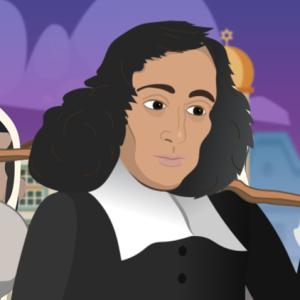
Chapter 2
Spinoza on Toleration
In 1656, at the age of 23, Baruch Spinoza was literally excommunicated from the Jewish community in Amsterdam for his views on God, the law, and the soul. Members of that community were forbidden to associate or communicate with him. This happened even though Spinoza’s main discussion of religion, in his Tractatus Theologico-Politicus (TTP), did not appear until 1670. Across Europe, religion was perhaps the predominant cultural force. Controversies abounded and intolerance was common, even, at times, in relatively tolerant countries such as the Netherlands. Within a given religious sect, conformity was often strictly enforced. In addition, during the early years of Spinoza’s life, the “30 Years War” was raging. That war began as a religious war, though by the end it became more of a war over religious affiliations than over religion itself. Religious affiliation was perhaps the most common basis for group identification in that era. In Spinoza’s case, during his lifetime he circulated among some of the more liberal and radical religious sects. He had, for example, a number of Mennonite friends, and that sect was an offshoot of the Anabaptist movement, which advocated a strong separation of church and state. No doubt their “radical” doctrines both attracted and subsequently influenced Spinoza—and also put him at odds with the establishment of both the Jewish and Christian communities in Amsterdam.
-
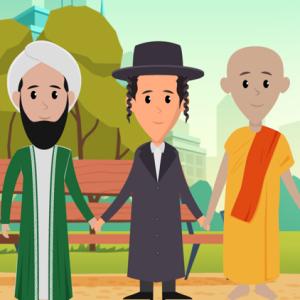
Chapter 3
Spinoza on Freedom and Power
In political philosophy there is an approach called “social contract” theory. Basically, this view began, at least in the modern era, with Thomas Hobbes and holds that the sovereign power—and sometimes also the legitimacy of that power—is established by people “contracting” with one another to set up a government. The time prior to when people get together to set up their government is known as the “state of nature.” The state of nature is thus that period of time, before any general agreement, when there is no government. There are different theories about what such a time would be like, or even whether it is truly possible to have a state of nature. Also, there are different theories about how the move out of the state of nature would go. Although it is debatable whether Spinoza is actually a social contract theorist, he does comment about our natural state and our natural rights, as well as the setting up of a government. Let’s begin with what Spinoza takes to be our natural rights and then move to the state of nature and the rights of government.
-
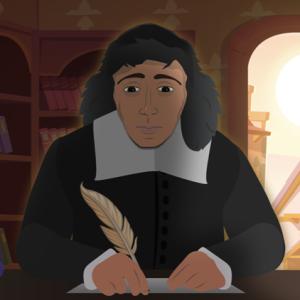
Chapter 4
Montesquieu on Despotism, Moderation, and Liberty
Charles-Louis de Secondat, Baron de La Brède et de Montesquieu (1689- 1755) was a member of the provincial French nobility, a jurist, a celebrated novelist, and arguably the decisive figure in inaugurating the key decades of the Enlightenment in the study of society. Earlier thinkers, including Spinoza, had drawn on new scientific ways of thinking to try to understand the human mind, the nature of reality, and the relationship between man and God. But the flourishing of political, social, and economic thought that we associate with the Enlightenment, with thinkers as varied as Rousseau, Smith, Hume, Kant, Beccaria, Ferguson, Madison, Jefferson, Paine, Wollstonecraft, and Condorcet, only got fully underway with the publication of Montesquieu’s The Spirit of the Laws (1748).
-
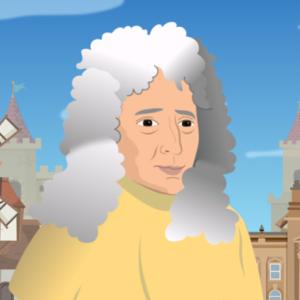
Chapter 5
Montesquieu on Pluralism
Traditional political theories often focused on unity and uniformity as key aspects of a well-governed society. Difference, disagreement, and division were at best problems to manage, and at worst signs that there was no true community at all. From ancient Greece onward, political thought was marked by such metaphors as the ship of state, a ship on which we must all row in the same direction, one chosen by a captain we all obey, if we are to get anywhere; and the body politic, a body that acts as one, trying to preserve itself under the direction of a single mind.
-
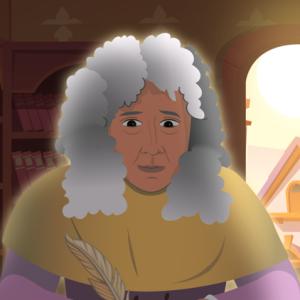
Chapter 6
Montesquieu on Commerce
The traditional emphasis on unity in political thought we discussed in the previous chapter accompanied a distrust of commerce, with its division of labour, difference between buyers and sellers, class differences, specialization, and conflicts of interest. In Part IV of The Spirit of the Laws Montesquieu decisively rejects that vision, and develops what comes to be known as the doux commerce thesis: commerce and trade soften and polish what had been harsh, warlike, and barbaric values. They have transformed the modern world and drawn it together. Although they have also provided the occasion for new kinds of international injustices through imperialism and colonialism, they tend to encourage toleration, peace, and justice. Montesquieu’s doctrine of the separation of powers shaped constitutional thought in the United States and elsewhere. His general approach to legal reform and criminal justice, his support for constitutional moderation, and his opposition to despotism were crucial for subsequent liberal political thought. But his account of commerce was probably his most important, transformative contribution to the social thought of the era of Enlightenment and to the development of what became liberal social theory. By putting the development of commerce at the center of his account of the transformations in European politics, and by developing an account of trade and exchange that stressed their moral advantages, he paved the way for the intellectual revolutions of the next few decades that were associated with the Scottish Enlightenment. The Spirit of the Laws was a widely acknowledged source and influence for the ideas subsequently developed by such authors as David Hume, Adam Ferguson, and Adam Smith.
-

Chapter 7
Kant’s Ethics
Immanuel Kant is widely regarded as one of the most important thinkers in the history of Western philosophy for his contributions to both epistemology— the study of what there is to know and how we can know it—and ethics— what we generally understand to be the study of right and wrong. But for Kant, ethics is closely tied to epistemology, rationality, and the characteristics of rational beings. Instead of focusing on whether certain actions are right or wrong and why they are right or wrong, Kant’s moral philosophy focuses on the principles underlying those actions, how they are adopted, and whether or not they are consistent with individual freedom or autonomy.
-
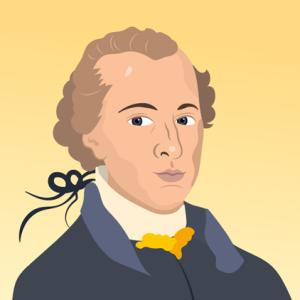
Chapter 8
Kant’s Politics
Kant’s account of morality focuses on a person’s capacity to be the agent and owner of his own actions, not merely a conduit for social and psychological forces or influences over which he has little or no control. His discussion of this connection between morality and freedom centers on autonomy of the will. Because morality is connected with autonomy, and autonomy is connected with an individual’s ability to participate in the process of rational deliberation and choosing ends for himself, it appears as if an individual alone should be the sole determining factor in whether he becomes virtuous. But that is not the case.
-
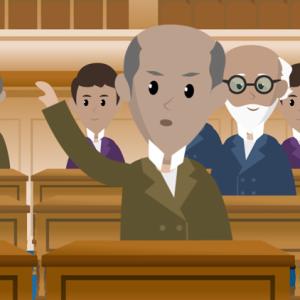
Chapter 9
Kant’s Legacy
There’s a story in academic circles that serious philosophical work in the liberal political tradition coming out of Enlightenment thinkers died after Kant, only to be resurrected by Harvard University philosopher John Rawls in the 1970s. While this story contains a bit of hyperbole, there’s little doubt that, after Kant, no writing before 1971 had the impact of Rawls’s A Theory of Justice. Rawls’s project was to take the principles that he identified as central to Kant’s moral philosophy—principles like the obligation not to treat another moral being merely as a means to accomplishing some end—and apply those principles to the political question of what justice entails and how best to bring it about.
-
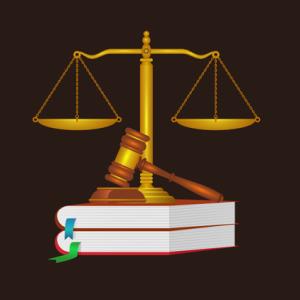
Chapter 10
Conclusion
The Enlightenment as an intellectual movement is commonly taken to end with Kant. The early modern political and social world that Enlightenment thought arose out of and theorized about was disrupted and transformed by the American, Haitian, and, especially, French Revolutions. By the time self-conscious and self-identified liberal political thought and political parties coalesced in the era after the Napoleonic wars had ended, the problems faced in politics seemed very different. States became much more powerful and centralized under the force of wartime military competition. Religious persecution and censorship and the power of absolute kings faded by comparison with the rise of nationalism and worries about the kind of violent, mob rule seen in France during 1793 and 1794. A generalized commitment to constitutional government or republicanism gave way to complicated institutional questions about how much to democratize government, how quickly: how much of a society could take part in voting and elections at any given level of economic and educational development without risk of revolution.
About the Author
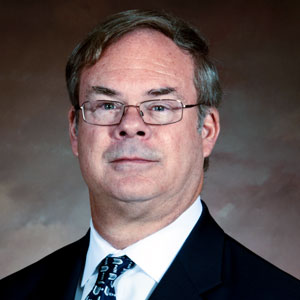
Douglas J. Den Uyl
Douglas J. Den Uyl, Ph.D., was born in Monroe, Michigan and attended Kalamazoo College (B.A. in Political Science and Philosophy), the University of Chicago (M.A. in Political Science), and Marquette University (Ph.D. in Philosophy). He is interested in the history of ideas and has published essays or books on Spinoza, Smith, Shaftesbury, Mandeville, and others. His interests also include moral and political theory. He is the author of Power, State and Freedom: An Interpretation of Spinoza’s Political Thought and God, Man and Well Being: Spinoza’s Modern Humanism. He co-founded the American Association for the Philosophic Study of Society, The North American Spinoza Society, and The International Adam Smith Society. He taught Philosophy and was Department Chair and Full Professor at Bellarmine University before coming to Liberty Fund where he is now Vice President Emeritus and Benjamin A. Rogge Resident Scholar.
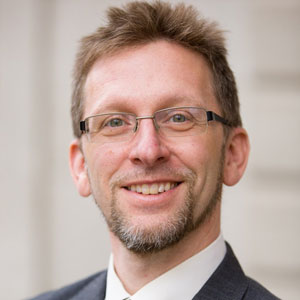
Jacob T. Levy
Jacob T. Levy is Tomlinson Professor of Political Theory, Chair of the Department of Political Science, and associated faculty in the Department of Philosophy at McGill University. He was Founding Director of McGill’s Yan P. Lin Centre for the Study of Freedom and Global Orders in the Ancient and Modern Worlds, and is coordinator of the Lin Centre’s Research Group on Constitutional Studies. He is the author of The Multiculturalism of Fear (Oxford, 2000) and Rationalism, Pluralism, and Freedom (Oxford, 2015). He is a Senior Fellow at the Niskanen Center and the Institute for Humane Studies.

Chris W. Surprenant
Chris W. Surprenant is Professor of Ethics, Strategy, and Public Policy; Director of the University Honors Program; and Founding Director of the Urban Entrepreneurship & Policy Institute at the University of New Orleans. He is the author of Injustice for All: How Financial Incentives Corrupted and Can Fix the US Criminal Justice System (Routledge, 2019) and Kant and the Cultivation of Virtue (Routledge, 2014).
Additional Resources
Baruch Spinoza
- Episode 33 – Spinoza pt. 1 – from Baruch to Benedicto! (August 25, 2021)
An episode of the “Philosophize This!” podcast provides context to the time in which Spinoza lived, and the reasons underlying Spinoza’s exile from his community, and thus forced life of solitude. In addition, Spinoza’s view on religion is discussed, including excerpts of correspondence between Spinoza and his former influential friend Albert Burgh. - Episode 34 – Spinoza pt. 2 (September 1, 2021)
Part two of the “Philosophize This!” podcast on Spinoza continues to describe his philosophy, with a focus on his thoughts of God, Nature, and Free Will. - Philosophy – Baruch Spinoza, The School of Life
An engaging eight-minute educational video that covers Spinoza’s early years, his views on God, his criticism of traditional religion, and his philosophy based on a rationalist system of beliefs. - Steven Nadler on Spinoza on Free Speech (May 18, 2021)
An episode of the “Philosophy Bites” podcast featuring a discussion between Steven Nadler and Nigel Warburton on the topic of Spinoza’s views on freedom of speech and freedom of expression. - The Core Curriculum: Baruch de Spinoza
A brief overview of Spinoza’s life, including his major works, his philosophy of metaphysics, his ethics, and his political philosophy.
Immanuel Kant
- Philosophy – Immanuel Kant, The School of Life
An engaging eight-minute educational video that discusses Kant’s upbringing, and his major contributions to philosophy, including his belief in replacing traditional religion with the authority of reason, as well as a detailed explanation of Kant’s central philosophical concept, the categorical imperative. - Immanuel Kant from Stanford Encyclopedia of Philosophy
A detailed account of Kant’s life and major works, including an explanation and interpretation of his core philosophical ideas including the fact of reason, the categorical imperative, objectivity and judgment, and the law-giver of nature, among others. - The Core Curriculum: Immanuel Kant
A brief overview of Kant, focusing on his early family life, his scholastic endeavors, and his major philosophical works and contributions. - Kant’s Principles of Politics, including his essay on Perpetual Peace (author: Immanuel Kant, translator: William Hastie)
A translated edition of a number of Kant’s shorter essays on the topic of Universal History, Political Right, Principle of Progress, and Perpetual Peace. - Immanuel Kant
An overview of Kant’s major works and contributions, including the core principles of his moral philosophy, political philosophy, and his critique of metaphysics. - Immanuel Kant from Internet Encyclopedia of Philosophy
A detailed account of Kant’s life, major works, the impact of his contributions to philosophy, and an explanation of his core belief in acting rationally according to a universal moral law. - Immanuel Kant: Metaphysics from Internet Encyclopedia of Philosophy
A detailed overview of Kant’s life and major works and contributions, with various detailed sections such as Empiricism, Rationalism, Kant’s Answers to his Predecessors, Kant’s Transcendental Idealism, Kant’s Criticisms of Utilitarianism, among others.
Montesquieu
- Baron de Montesquieu, Charles-Louis de Secondat from the Stanford Encyclopedia of Philosophy
An encyclopedic overview of Montesquieu’s early life, his most important works, including his theory of the separation of powers, which he believed was the principal way to prevent government corruption and has been key to the development of liberal political theory. - Montesquieu and the Separation of Powers
A comprehensive overview of Montesquieu’s life and the sources of inspiration in his early years that influenced his approach to the separation of power and his views on the monarchy, as well as a detailed explanation of his major works, including the “Lettres persanes,” “De l”Esprit des Loix,” among others. - Montesquieu: The Spirit of Separation – Enlightenment
A concise educational video exploring Montesquieu’s early influences, his most influential works including, “Persian Letters,” “The Spirit of Laws,” among others, and a detailed explanation of his theory on the separation of power. - Hobbes, Locke, Montequieu, and Rousseau on Government
This article compares and contrasts the theories of government of three influential Enlightenment philosophers, including Montesquieu, Locke, and Rousseau, and each of their distinct influence on the democratic governments that would follow the American and French revolutions.
The Enlightenment period
- Enlightenment from Stanford Encyclopedia of Philosophy
This article provides a detailed overview of the core themes of philosophical thought attributed to the Enlightenment period in Europe and is divided into three distinct sections accordingly: “The True: Science, Epistemology and Metaphysics in the Enlightenment,” “The Good: Political Theory, Ethical Theory and Religion in the Enlightenment,” and “The Beautiful: Aesthetics in the Enlightenment.” - The Enlightenment: Crash Course European History #18, Crash Course
A concise educational video that explores the historical context of the Enlightenment, the influential thought leaders and philosophers, and the lasting impact of their ideas on our worldview today.
Essential Scholars is brought to you by
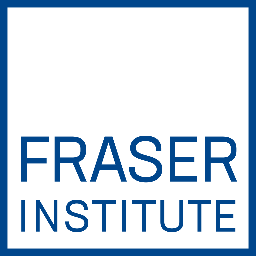
Fraser Institute
Institute for Economic Affairs
Institute of Public Affairs
Foundation for Economic Education
Acknowledgements
Made possible by generous grants from the Lotte and John Hecht Memorial Foundation, the John Templeton Foundation, and the Peter and Joanne Brown Foundation.
